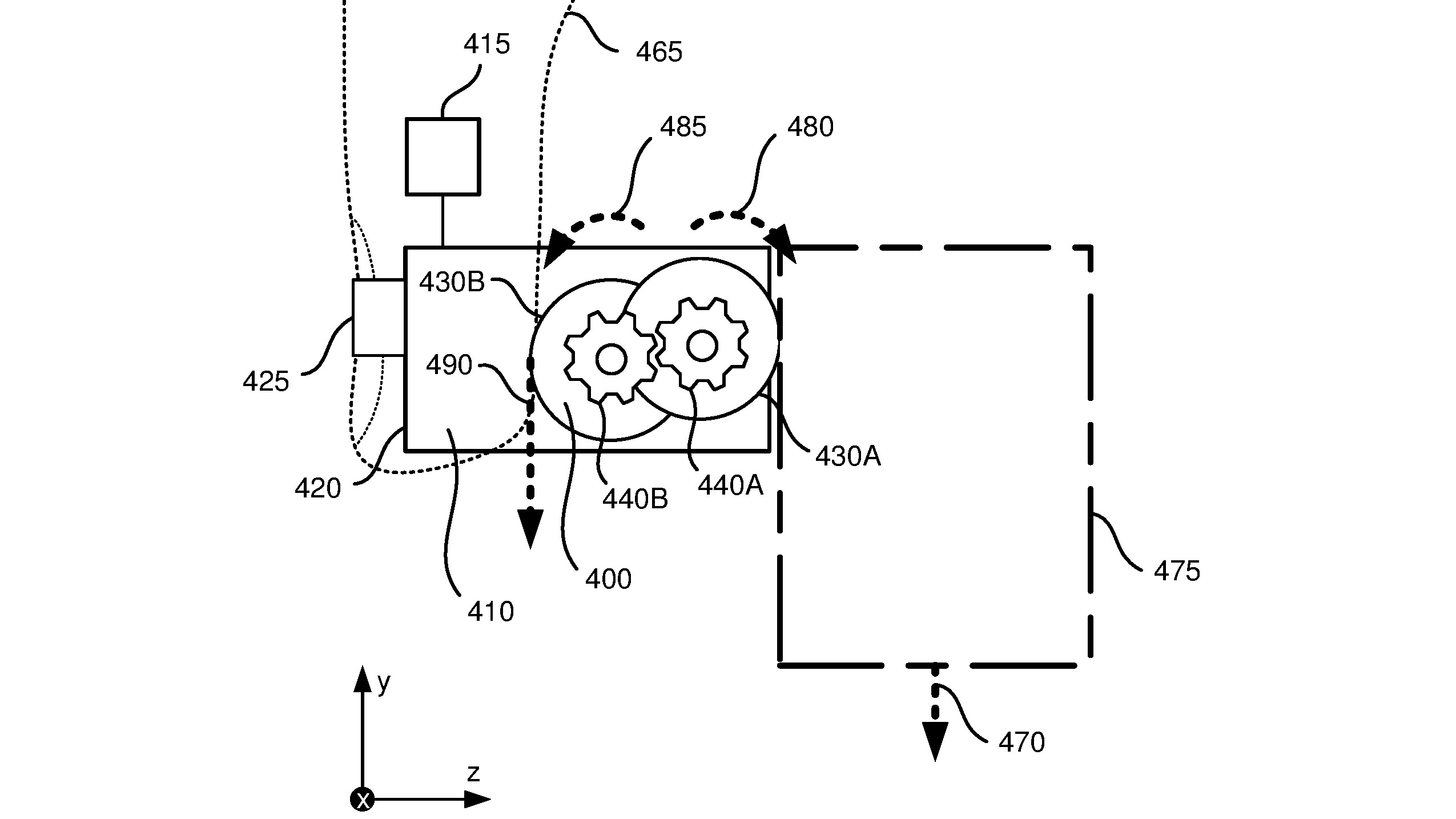
As much as we like Oculus Touch controllers, interacting with virtual environments using buttons and joysticks will never feel wholly immersive.But based on Oculus latest patented plans, Facebooks virtual reality (VR) division wants to ratchet up the tactile realism to 11.In a pair of creepy-sounding but intriguing patents publicized today, Oculus is circulating its goal to create a skin stretch instrument that will sense how much your skin moves when picking up certain objects.Say you pick up an apple.
The gears and rollers in your Oculus Rift haptic gloves will sense and measure the pressure levels against your palm and fingers, and a skin stretch sensor records the tactile feedback.
Then, when the user picks up a virtual apple, the gears in your gloves will twist accordingly to simulate the same mechanical feedback.Gears and rollers will track and replicate the sensation of picking up everyday objects (Credit: US Patent and Trademark Office)The first patent specifies that each glove would have six skin stretchers, one in the palm and one on each fingertip, that can move in any X-, Y- or Z-axis direction to simulate touch.Oculus engineers appear to be optimistic about how realistic this feedback will feel.
Some examples of objects that users could pick up included a basketball, flower petals, a Corgi puppy dog, and various fruits including mangoes, peaches, grapes, and strawberries.While the first patent shows particular care towards realistic finger feel, the second patent covers how Oculus will make your entire hand feel the pressure of objects.The haptic feedback gloves will contain an expandable bladder that will adjust in size to simulate pressure against users hands as they press them against objects or walls.
The patent figures suggest that this pressure could be localized to specific areas of the hand, like the sides of fingers or the skin between your fingers.The 'Pressure Source' will emulate whole-hand pressure, while the first patent's finger-stretchers will focus on the minor details (Credit: US Patent and Trademark Office)The first patent also specifies that this glove could work in a VR system, an AR system, mixed reality (MR) system, or some combination thereof.Weve heard rumors of Facebooks augmented reality glasses for some time, so this indicated Oculus haptic gloves could work for more than just the Oculus Rift and Oculus Go.Feeling out the haptic competitionWhile Oculus is one of the bigger names working on haptic feedback, it certainly isnt the only one with ideas on how to simulate touch in VR.Cornell Universitys Organic Robotics Lab and Nvidia developed the Omnipulse, gloves with a thin rubber layer for sensitive feedback and air pockets for replicating different textures.And UC San Diego created haptic gloves with a McKibben musclewhich (like Oculus adjustable bladder) inflates and deflates to replicate pressureand latex chambers that simulate different sensations on users fingers.Well have to wait and see which prototype ends up producing the most realistic skin stretching feel.Via Digital TrendsWwBfffdFqG5bqLNNLthF2Z.jpg#

 17
17






